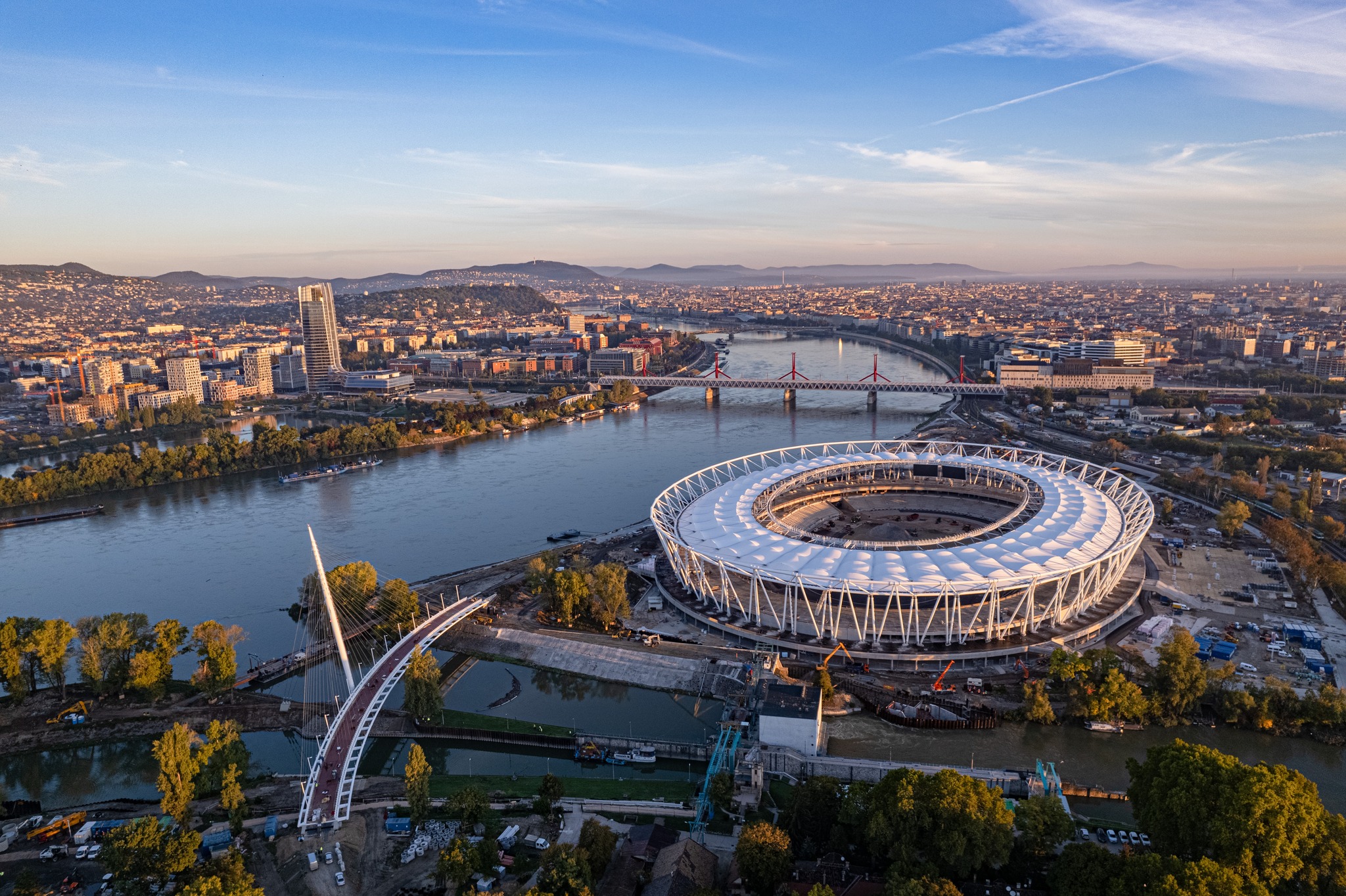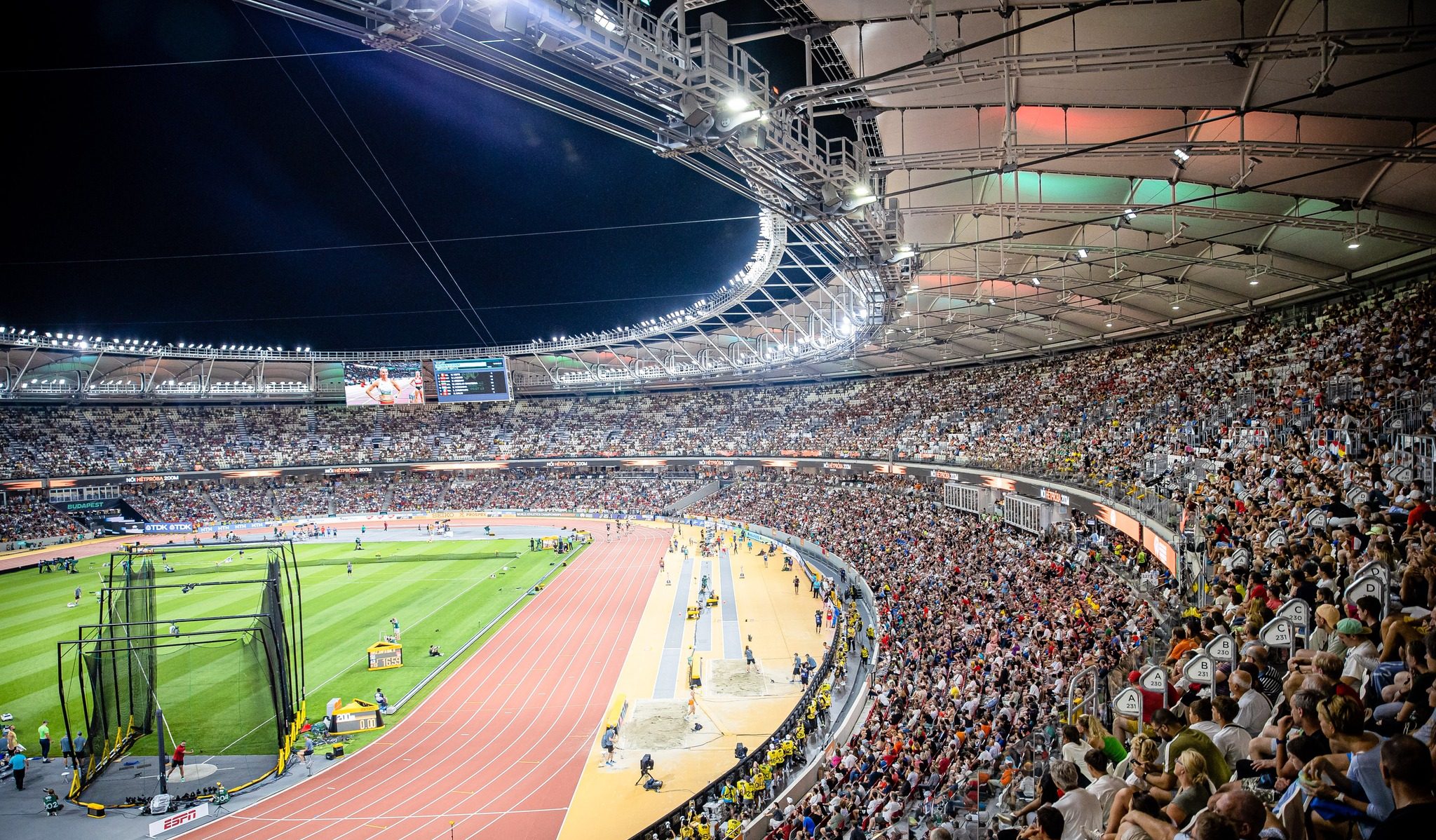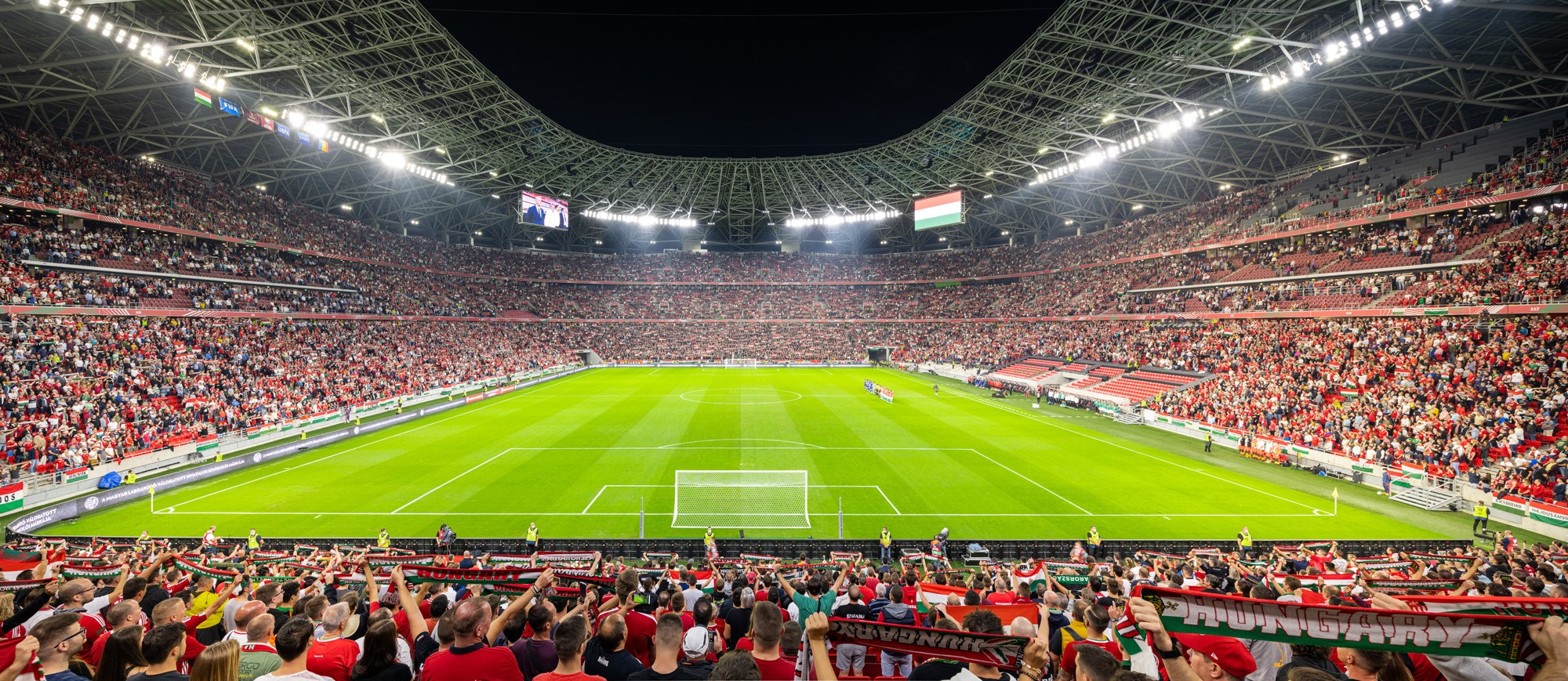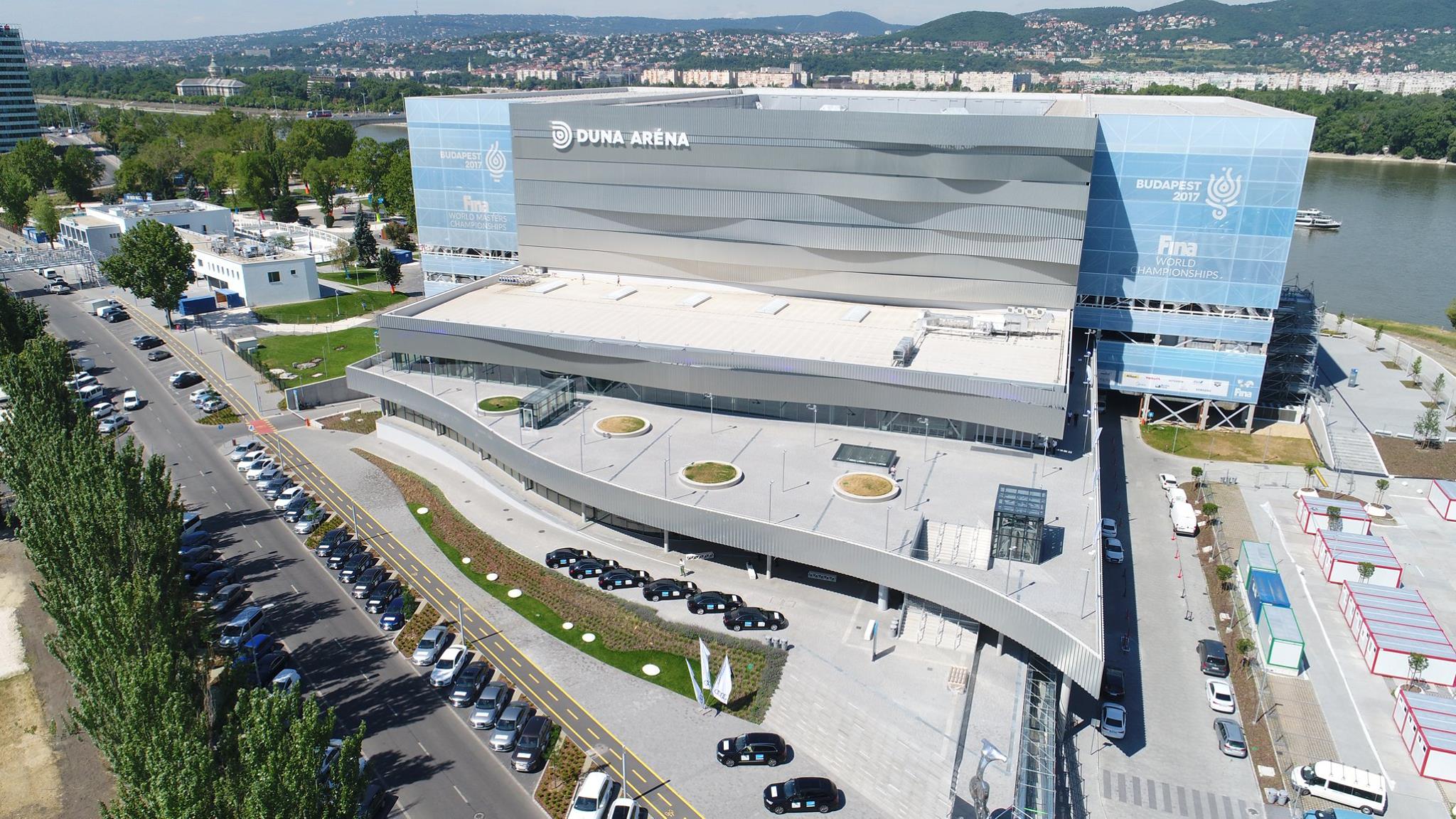
The new survey shows how satisfied the fans are with the championships organized in the Hungarian capital.Continue reading

Sporting events create jobs, and the associated investments bring lasting benefits. The hosting of these events contributes to social welfare, based on a study by the Oeconomus Economic Research Foundation. In addition to the positive effects, Hungary has managed the risks well, writes Magyar Nemzet.
The 2023 World Athletics Championships, the 2017 and 2022 World Aquatics Championships, the 2021 (2020) European Football Championships in 11 European cities, including Budapest, and the first three stages of the 2022 Giro d’Italia, the Hungarian Formula 1 Grand Prix, extended until 2032, are just a few of the major international sporting events that Hungary has hosted in recent years, the Oeconomus Economic Research Foundation gathered in a study analyzing the economic, social, and touristic impact of sporting events.
Sport is closely linked to identities, including nationality and social groups, but it is also a key part of ideologies and is therefore deeply embedded in social processes, with a wide range of economic dimensions.
Good organization is also essential for positive economic effects, the study notes. Mega-sport events are a major factor in raising the profile of the host country and city, as in Barcelona, Sydney, or Beijing, and the popularity of the Hungarian capital has also benefited from the flagship sporting events.

Photo via Facebook/Hungaroring
As well as tourism, there is another major benefit in the long-term investment: these opportunities improve infrastructure and transport, developing infrastructure in parts of the city that were previously underdeveloped or considered brownfield sites. Multi-year planning and investment can help create jobs and revitalize cities in crisis.
Short-term positive effects include a surge in visitors, athletes, and media coverage of the host country during the event period. Visitor spending will contribute to the growth of the local economy.
In essence, it is like the host country exporting services and products. It also increases the demand for local currency, which can contribute to the strengthening of the exchange rate. In addition to boosting tourism, major international sporting events also have a significant country marketing value.

Photo via Facebook/Puskás Aéna
As well as the positive effects, the risks must also be managed, the study points out. Many sporting events have been extremely costly and expensive to organize, and the sports facilities they have built remain underused. However, in Hungary, there are many positive examples of sporting events that have been organized and have exceeded expectations. One of the flagships of this is the Duna Arena, designed with the fundamental objective that the final building itself should be able to serve the needs of the Hungarian Swimming, Water Polo, Synchronized Swimming, and Diving Federations.

Photo via Facebook/Duna Aréna
A further negative point usually mentioned in connection with major sporting events is that it puts local businesses at a disadvantage when selecting suppliers.
In the organization of the 2023 World Athletics Championships, the involvement of Hungarian small and medium-sized enterprises was a priority.
This factor is also an economic stimulus and helps to increase employment. The routine that Hungary has acquired in organizing large-scale events in recent years can greatly help to avoid the negative effects of world competitions.
Via Magyar Nemzet, Featured image via Facebook/World Athletics Championships Budapest 23